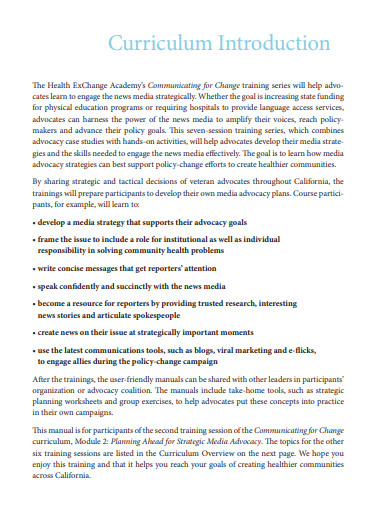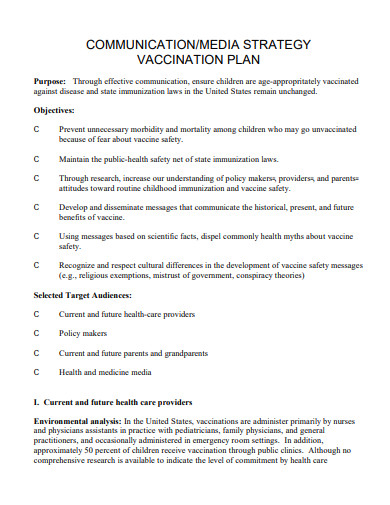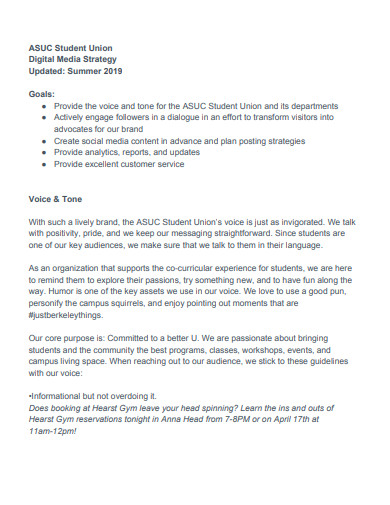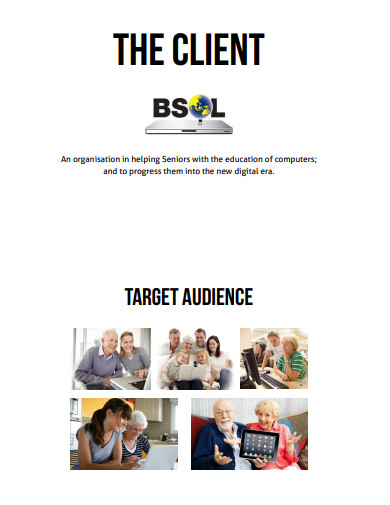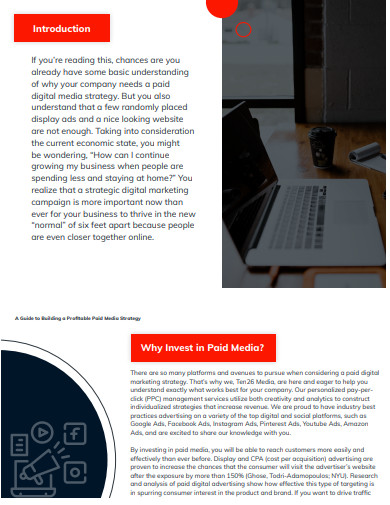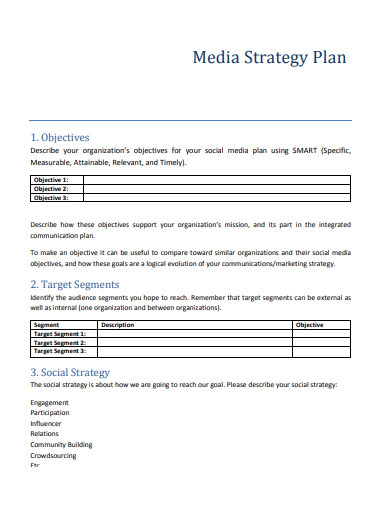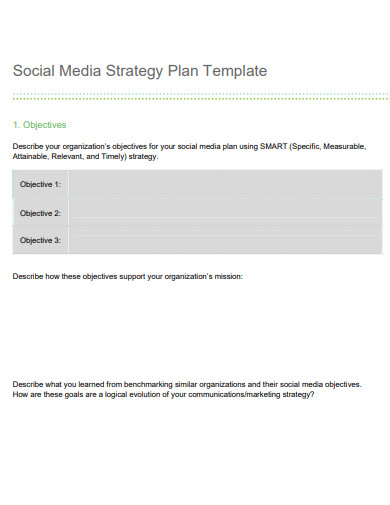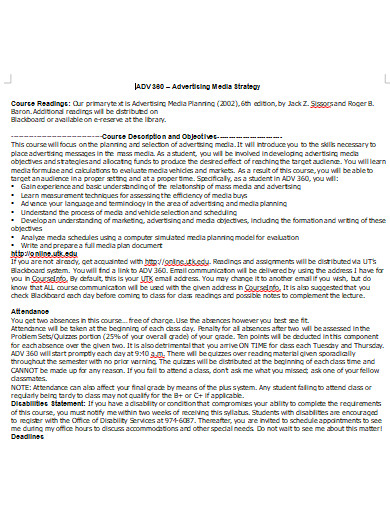For companies or organizations to get the proper exposure of the products, services, projects, and other ventures they want to make public; they need to have good media strategies to aid them in connecting to their target audience and delivering the message that will resonate with them. A content director, marketing manager, or account manager, or any persons with knowledge of media, budgeting, content development, and other areas connected to marketing are usually assigned to the duties of a media planner. One of the responsibilities of a media planner is to create a media strategy plan. For it to be executed successfully, a thorough understanding of the components of a media strategy, the platforms that may carry the message, and the aspects that go into a is a must. This article will guide you on how to make a media strategy plan.
10+ Media Strategy Plan Samples
1. Media Strategy Plan
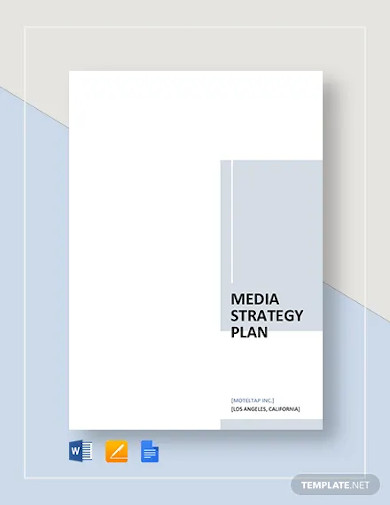
2. Social Media Content Strategy Plan
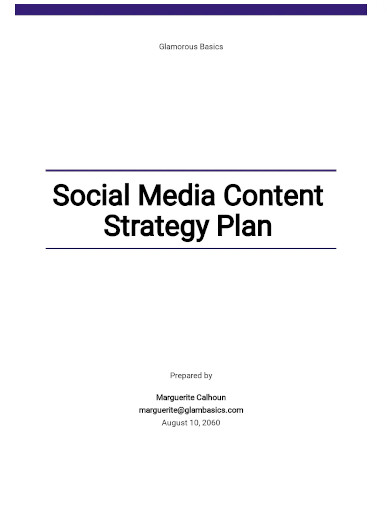
3. Strategic Social Media Marketing Plan
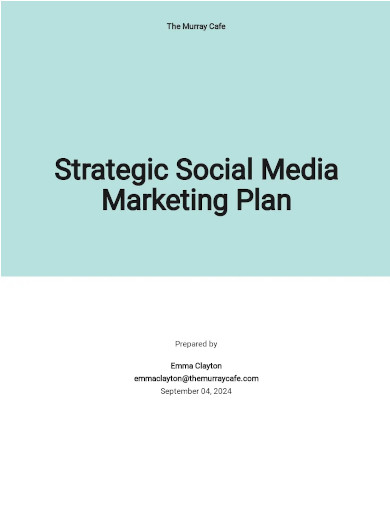
4. Strategic Media Advocacy Plan
5. Media Strategy Vaccination Plan
6. Digital Media Strategy Plan
7. Sample Media Strategy Plan
8. Simple Media Strategy Plan
9. Media Strategy Plan Example
10. Social Media Strategy Plan
11. Advertising Media Strategy Plan
What Is Media Planning?
The process of determining how, when, and to whom a branding or advertising message will be delivered is known as media planning. A media planner examines how a message is supposed to support a marketing or advertising strategy, then devises techniques for getting that message to the right people in the right places.
How to Create a Media Strategy Plan
1. Research and Identify Your Target Market
Your overall marketing strategy will be more effective if you know more about your target market. Determine your target market, including where and how they spend their time, as well as the media and messaging that will best reach them. For example, reaching the teenage audience through mobile apps and social media would be more effective than advertising in print and traditional media.
2. Set Measurable Objectives and Goals
During the plan formulation process, keep your overall marketing aim and goals in mind. These must be quantifiable and precise. Use the SMART technique (Specific, Measurable, Achievable, Realistic, and Time-Based) to set your goals.
3. Determine Your Marketing Budget
Your media strategy should include a marketing budget. It’s easy to throw thousands of dollars at an issue and come up with no obvious solution if you don’t have a budget. A set budget forces you to think through each technique and be more inventive in your problem-solving. It keeps you from going into debt or spending money you don’t have.
4. Create Your Message
The marketing proposition is the client problem that your company will solve and the method by which it will do it. The message is based on your study on what the target audience will respond to. You can have different messages for different goals, all tied together by a common theme. Don’t forget to include a call to action.
FAQs
What are the components of media planning?
The components of media planning that needs to be taken into account are:
- Audience: To who is the message targeted? Why and how is the message relevant to them?
- Marketing budget: How much is available to spend on delivering the message?
- Conversion goals: What action must the message encourage the audience to do and how will that actively support the media strategy?
- Definition of success: What key performance indicators must be measured and reported and how do they support the strategy?
- Message frequency: How often should the message be shared?
- Message reach: How many people should receive the message?
What are the different types of media strategy?
The different types of media strategy are:
- Media concentration strategy
- Media dispersion strategy
- Earned media strategy
- Paid media strategy
- Owned media strategy
Once you’ve executed your plan for your media strategies, always keep yourself updated with it and learn from your results. Over time, you will learn, through trial and error and some experiences the most effective media techniques you can adapt for your brand. If for example, a plan fails to produce the intended results from your media strategy plans, your organization or company can learn from those mistakes and create better future launches. To help you get started making the strategy plan, download our free sample templates above to use as your guide!
Related Posts
FREE 10+ Sprint Planning Samples In MS Word | Google Docs | PDF
FREE 10+ Wedding Planning Samples in MS Word | Apple Pages | Powerpoint | PDF
FREE 9+ Monthly Study Planner Samples in PSD | Illustrator | InDesign | PDF
FREE 9+ Sample Curriculum Planning Templates in PDF | MS Word
FREE 10+ Teacher Development Plan Samples in MS Word | Google Docs | Apple Pages | PDF
FREE 10+ Basketball Practice Plan Samples in PDF
FREE 12+ School Business Plan Samples in PDF | MS Word | Apple Pages | Google Docs
FREE 7+ Client Strategic Plan Samples in PDF | MS Word
FREE 11+ Trucking Business Plan Templates in PDF | MS Word | Google Docs | Pages
FREE 7+ Small Hotel Business Plan Samples PDF | MS Word | Apple Pages | Google Docs
FREE 14+ Bakery Business Plans in MS Word | PDF | Google Docs | Pages
FREE 4+ Yearly Lesson Plan Samples in PDF
FREE 50+ Strategic Planning Samples in Google Docs | Pages | PDF | MS Word
FREE 10+ Construction Project Plan Samples in MS Word | Google Docs | Apple Pages | PDF
FREE 10+ Construction Marketing Business Plan Samples in MS Word | Google Docs | PDF

